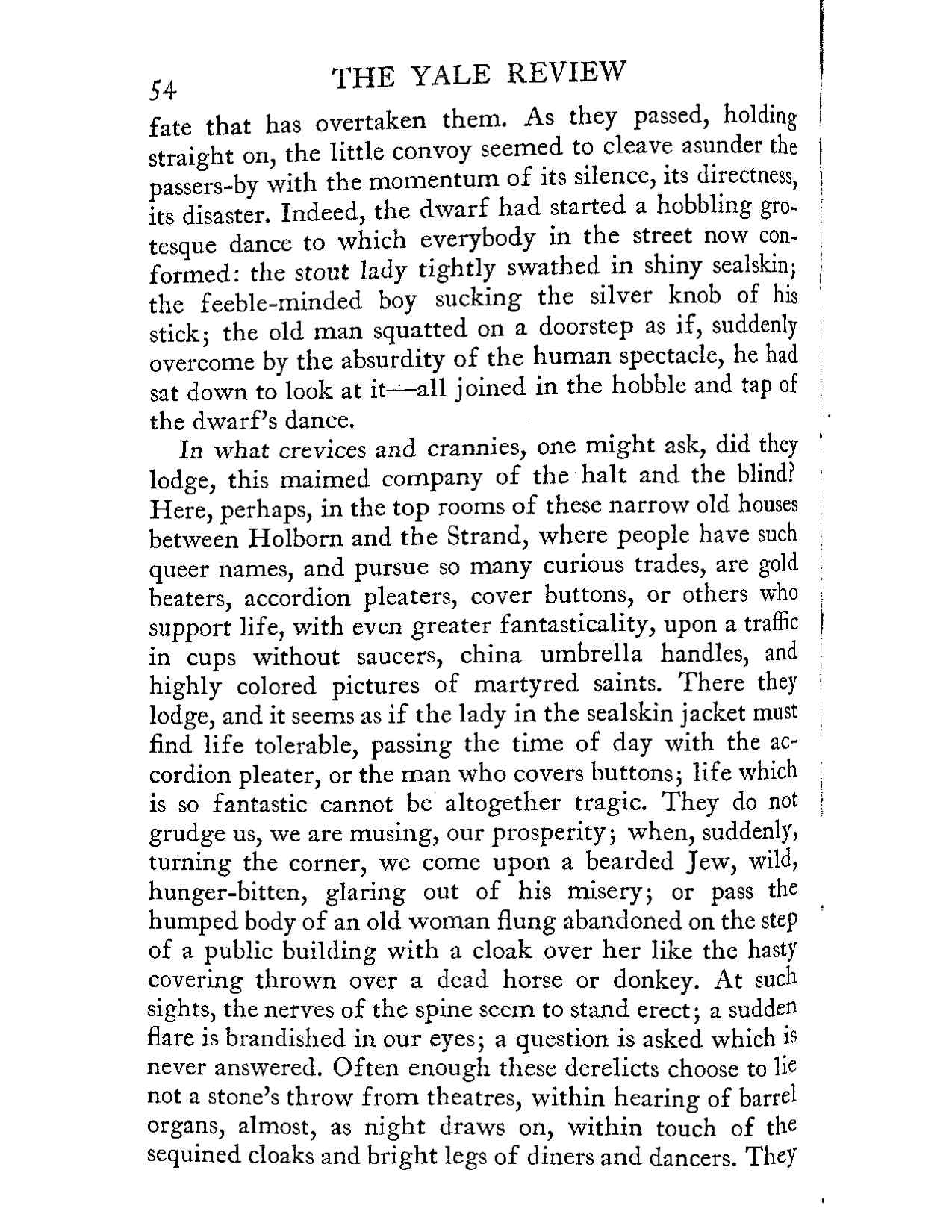
fate that has overtaken them. As they passed, holding
straight on, the little convoy seemed to cleave asunder the
passers-by with the momentum of its silence, its directness,
its disaster. Indeed, the dwarf had started a hobbling gro-
tesque dance to which everybody in the street now con-
formed: the stout lady tightly swathed in shiny sealskin;
the feeble-minded boy sucking the silver knob of his
stick; the old man squatted on a doorstep as if, suddenly
overcome by the absurdity of the human spectacle, he had
sat down to look at it—all joined in the hobble and tap of
the dwarf's dance.
In what crevices and crannies, one might ask, did they
lodge, this maimed company of the halt and the blind?
Here, perhaps, in the top rooms of these narrow old houses
between Holborn and the Strand, where people have such
queer names, and pursue so many curious trades, are gold
beaters, accordion pleaters, cover buttons, or others who
support life, with even greater fantasticality, upon a traffic
in cups without saucers, china umbrella handles, and
highly colored pictures of martyred saints. There they
lodge, and it seems as if the lady in the sealskin jacket must
find life tolerable, passing the time of day with the ac-
cordion pleater, or the man who covers buttons; life which
is so fantastic cannot be altogether tragic. They do not
grudge us, we are musing, our prosperity; when, suddenly,
turning the corner, we come upon a bearded Jew, wild,
hunger-bitten, glaring out of his misery; or pass the
humped body of an old woman flung abandoned on the step
of a public building with a cloak over her like the hasty
covering thrown over a dead horse or donkey. At such
sights the nerves of the spine seem to stand erect; a sudden
flare is brandished in our eyes; a question is asked which is
never answered. Often enough these derelicts choose to lie
not a stone's-throw from theatres, within hearing of barrel
organs, almost, as night draws on, within touch of the
sequined cloaks and bright legs of diners and dancers. They






